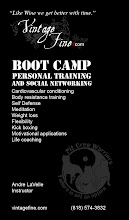re•mark•able [adjective]: worthy of being noticed, especially as being uncommon or extraordinary
If you want to break out of the mold of average, the first thing you need to do is to make a decision to be radically different. Most remarkable people are people of action, and for a good reason: if you don’t take decisive action, nothing will ever change. But this first step is entirely mental. It calls for a clear decision to rise above the culture of mediocrity.
And then, of course, it does call for action.
How do you decide to be remarkable?
1. Stop making excuses. Just stop. No one wants to hear why you couldn’t do something, so make a conscious decision to stop talking about it.
2. Take responsibility. This is the opposite of giving excuses. Take responsibility for your own success, and take responsibility for the success of projects you work on. When something goes wrong (it usually does), take responsibility for that too.
3. Start questioning rules and expectations. Always ask questions and pay close attention to the answers you hear back. Some good starting questions are: Why is this rule in place? Who benefits from this rule being followed? What are the consequences if I don’t follow this rule or meet this expectation? What is the worst thing that could happen if I don’t follow this rule?
4. Find work that you love and do it well. Depending on who you are, this requires up to two big changes in your life: first, you have to find work that you love, and second, you have to do it well. Do it better than expected and people will be amazed.
5. Begin living your own life. This is what it’s all about—the life you were meant to live. If you don’t know what that is yet, start looking for it. Why would you want to live someone else’s life?
6. Take it up a level. Take what’s already working well and exponentially add to it. Grow your business 300%. Apply for the position of CFO when you’re the Accounts Payable Clerk. Visit five countries instead of one on your next trip (or if you want to explore one place well, stay three weeks instead of one).
Beware of Excellence
But watch out: being remarkable is addicting. It’s like regular exercise or healthy eating. When you first start a new exercise routine or diet, the adjustment is hard for a while. But after about 3-6 months of following it consistently, you build up a natural addiction to it.
Once you get used to regular exercise, you’ll feel bad when you’re not doing it. The same is true with being remarkable: do it once, and it’s scary. Do it a few times, and you love it. Stop doing it, and you’ll get depressed.
Many remarkable people deal with depression and anxiety all the time because they see the world differently than average people do. Their own failures and perceived failures are magnified. When others say, “Don’t worry about it,” they can’t understand why someone would think something like that. For this reason, a lot of geniuses throughout history have been chronically depressed.
Those are the hard things—and you also have to think about the critics, the skeptics, and the competition. We’ll come to those later. On the other hand, there are some great benefits to being remarkable:
HELP FROM A COMMUNITY
As you proceed with your plans for world domination, or whatever you want to do, you’ll be naturally drawn to others who have made the same decisions to be different. Even better, they’ll be drawn to you. You’ll learn from them and vice versa.
Whether you live in the Dilbert Cube, the Ivory Tower, the public sector, or are out there on your own somewhere, there are lots of ways to be remarkable. The specific application is up to you, and when you choose to make your own way, other people who “get it” will seek you out.
Remarkable people are all minorities in a world of average living.
HELP FROM THE UNIVERSE
You’ll find help in all kinds of unexpected places and from people you never knew before. No one really knows how this works, practically speaking. It’s okay; just accept the gifts that are given to you. They are given for a reason.
WHAT GOES UP STAYS UP
Instead of shrinking over time, your vision will actually get bigger. The funny thing about big goals is that they often take less time to achieve than you expect, and once you achieve them, you’ve already mentally moved on to bigger and better goals. As you proceed with questioning authority, building your army, achieving your goals, and helping others, the vision keeps expanding.
This is why it is not much more difficult to grow a business from $1,000 a month in sales to $10,000. The challenge is in getting that first $1,000 together.
This is why artists scrape together a meager living for an average of seven years before being noticed. Most of them drop out along the way, but for those who stick with it, all of sudden they’re selling paintings for $8 a square inch. (And by the way, art that sells for $10,000 isn’t always better than $100 art hanging in the coffee shop.)
This is your personal tipping point—not when everyone else starts adopting a new trend and makes it mainstream, but when everything comes together for your own vision. But you have to get in the game first, and you can do that by being remarkable.
***
Of all the steps required to change the world in the way you see fit, the decision to be remarkable is the most important. With this decision in place, other variables can be changed. Don’t rush this—it’s a big commitment.
Once you make the commitment, you need a vision to change the world. What will it be? Whatever you choose, make sure it’s remarkable enough to suit every gift you have ever been given. Once you decide to defy the expectations of being average, there will be a lot riding on your ultimate success.
View original source
Wednesday, November 19, 2008
Subscribe to:
Posts (Atom)







